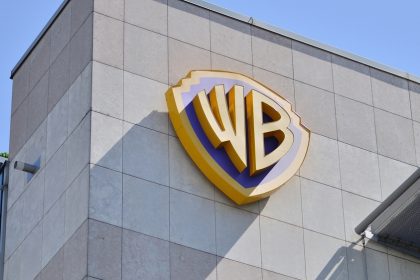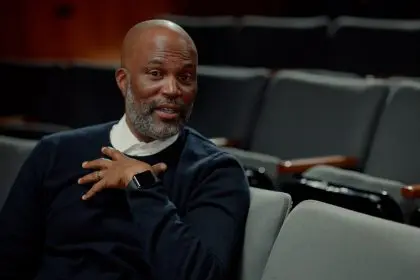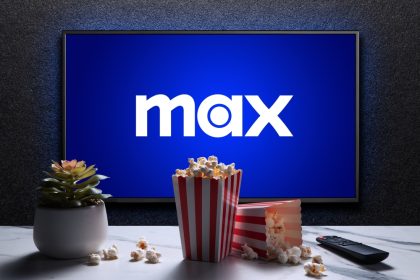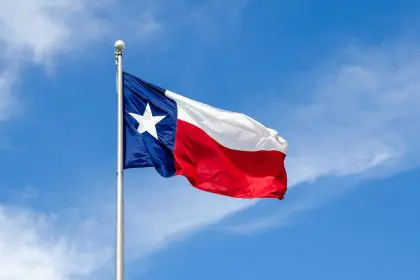The corporate breakup everyone saw coming has finally arrived, and it’s about to reshape one of the biggest media empires in the world. Warner Bros. Discovery just announced it’s splitting itself in half, essentially admitting that trying to run both old-school cable networks and modern streaming services under one roof has become impossible.
This isn’t just another boring corporate restructuring that only affects shareholders and executives. This decision will ripple through the entire entertainment industry and could fundamentally change how we consume media. More immediately, it raises serious questions about what happens to thousands of jobs in Atlanta, where this media empire first took root decades ago.
The split feels like watching a massive ship deliberately break itself into two smaller vessels to navigate increasingly choppy waters. Both pieces might be more maneuverable on their own, but the process of separation is going to be messy and expensive for everyone involved.
When staying together becomes impossible
The decision to split Warner Bros. Discovery into two separate public companies represents a massive admission that the media landscape has changed so dramatically that different strategies are required for different parts of the business. One company will focus on streaming and studios, while the other handles traditional cable networks.
Think about what this really means. The executives running this empire looked at their books and decided that HBO Max and Warner Bros. Pictures need completely different approaches from CNN and TNT. The synergies that were supposed to make the original merger so powerful have apparently become more like anchors dragging both sides down.
The streaming side gets HBO, Warner Bros. Pictures, and DC Studios. These are the crown jewels that everyone believes represent the future of entertainment. The cable side gets CNN, TNT Sports, and Discovery networks. These are the cash cows that still generate billions in revenue but face an uncertain long-term future.
This separation acknowledges what industry observers have been saying for years. Traditional cable television and streaming services don’t just have different business models, they require fundamentally different corporate cultures and strategic approaches.
Atlanta’s media legacy hangs in the balance
The split carries special significance for Atlanta, where Ted Turner built the foundation of what eventually became this massive media conglomerate. Turner’s vision of a Southern media hub created thousands of jobs and helped establish Atlanta as a major player in the entertainment industry.
CNN’s headquarters in downtown Atlanta became an iconic symbol of the city’s transformation from a regional center into an international hub. TNT and TBS built their operations around Atlanta’s growing film and television production infrastructure. The cumulative effect turned metro Atlanta into one of the most important media markets outside of New York and Los Angeles.
Now all of that history and infrastructure faces an uncertain future as corporate priorities shift toward streaming and digital content. The new company structure doesn’t necessarily mean massive job losses or facility closures, but it does mean that Atlanta’s role in the media landscape could change dramatically.
Local civic leaders and economic development officials are probably holding their breath right now, wondering whether the split will strengthen Atlanta’s position by creating more focused companies or weaken it by reducing the local presence of major media operations.
The debt problem that forced this decision
Behind all the strategic talk about flexibility and competitive positioning lies a more basic problem that forced Warner Bros. Discovery’s hand. The company is carrying massive debt from Discovery’s 2022 acquisition of WarnerMedia, and that financial burden has limited their ability to invest in growth opportunities.
Splitting the company allows each piece to manage its finances more effectively while potentially attracting different types of investors. The streaming and studios business can appeal to growth-oriented investors who believe in the future of digital entertainment. The cable networks business can attract value investors who want steady cash flow from established properties.
This financial engineering reflects broader trends in corporate America, where companies are increasingly willing to break themselves apart if it helps optimize their capital structure. The era of massive media conglomerates trying to do everything under one roof appears to be ending.
The debt situation also explains the timeline for completing the split by mid-2026. That gives both companies time to establish their independent operations while managing the complex financial and legal processes required for such a major separation.
Why everyone is abandoning cable TV
Warner Bros. Discovery’s split represents the latest example of media companies trying to escape their traditional television businesses. Comcast announced similar plans to spin off its cable networks, and Disney has considered selling its broadcast operations.
The pattern reflects harsh economic realities facing traditional television. Cord-cutting continues accelerating as viewers shift to streaming services and digital platforms. Advertising revenue for cable networks keeps declining as audiences fragment across countless entertainment options.
Meanwhile, streaming services offer better growth prospects and more attractive profit margins once they reach sufficient scale. The global reach of platforms like HBO Max creates opportunities that traditional cable networks tied to specific geographic markets simply cannot match.
Media executives are essentially betting that the future belongs entirely to streaming and digital distribution. Traditional television isn’t dead yet, but it’s clearly entering a terminal decline phase that makes long-term investment difficult to justify.
The Atlanta production boom continues
One potentially positive aspect of the split involves Atlanta’s role as a major film and television production center. The streaming and studios company will likely continue investing heavily in content creation, and Atlanta’s production infrastructure should benefit from that focus.
Georgia’s tax incentives for film and television production have made Atlanta one of the busiest production hubs in the country. Major studios have built significant operations in the metro area, creating thousands of jobs for everything from actors and directors to electricians and catering services.
The new Warner Bros. streaming company will need massive amounts of original content to compete with Netflix, Disney Plus, and other major platforms. Atlanta’s established production capabilities and cost advantages make it a logical choice for much of that content creation.
This suggests that while traditional media jobs in Atlanta might face uncertainty, production-related employment could actually increase as streaming companies ramp up their content spending.
What viewers should expect
For regular people who just want to watch their favorite shows and movies, the Warner Bros. Discovery split will probably be invisible in the short term. CNN will still cover news, TNT will still broadcast sports, and HBO will still produce prestige television series.
However, the long-term implications could be significant. The cable networks company will need to find ways to remain relevant as cord-cutting accelerates. That might mean more aggressive moves into streaming and digital distribution, or it could lead to consolidation with other traditional media companies.
The streaming and studios company will likely become more aggressive about creating exclusive content for HBO Max and other digital platforms. That could mean less content available on traditional television and more emphasis on subscription-based viewing.
The competitive dynamics between the two new companies could actually benefit consumers if it leads to more innovation and better content across both traditional and streaming platforms.
The end of the media conglomerate era
Warner Bros. Discovery’s decision to split represents more than just one company’s strategic pivot. It signals the end of an era when media conglomerates tried to own every aspect of content creation and distribution under massive corporate umbrellas.
The new approach focuses on specialization and agility rather than scale and integration. Companies are betting that being really good at one thing beats being mediocre at everything, even if that means giving up some potential synergies.
This trend toward corporate simplification reflects broader changes in how businesses operate in rapidly evolving industries. When technological disruption happens quickly, large organizations often struggle to adapt because their size and complexity slow down decision-making.
The media industry’s embrace of this approach could provide a template for other sectors facing similar disruption from digital technologies and changing consumer preferences.
Looking ahead to 2026 and beyond
The completion of Warner Bros. Discovery’s split in mid-2026 will create two very different companies with distinct challenges and opportunities. The streaming and studios business will compete in the rapidly growing but intensely competitive world of digital entertainment. The cable networks business will fight to remain relevant in a declining but still profitable traditional media landscape.
For Atlanta, the split creates both risks and opportunities. The city could lose some of its traditional media presence but gain more production activity as streaming companies increase their content spending. The net effect on local employment and economic impact remains unclear.
What’s certain is that this split represents a major inflection point for one of America’s largest media companies and the thousands of people whose livelihoods depend on its success. The next few years will determine whether breaking up really was better than staying together.












